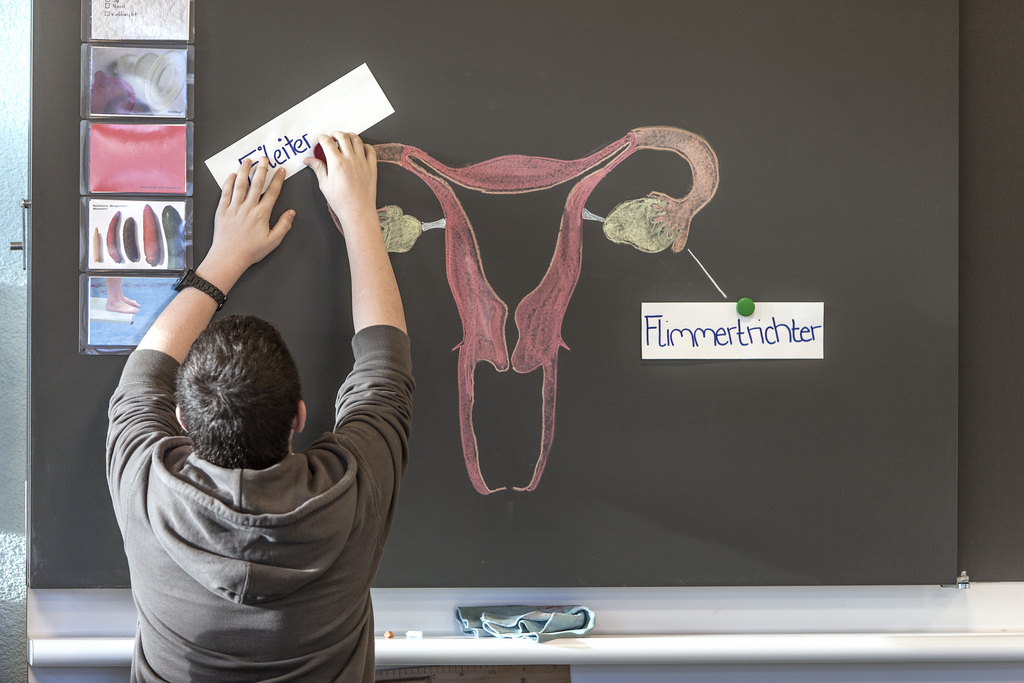
‘First time’ at 16 for most Swiss, sex survey finds

A survey of young Swiss people has found that 16 was the average age for the first sexual encounter – typically with a condom. One in ten reported having a sexually transmitted disease (STD).
The survey, conducted by the university hospitals of Lausanne and Zurich, queried 7,142 people aged 24-26. Part of the goal was to see how changes in technology, like dating apps and sexting, have affected the Swiss youth who grew up with them.
Nearly three-quarters reported having sent texts, photos or videos with sexual content, and 22% (mainly male) said they had passed “sext” messages on to third parties.
The survey also found that women were more likely than men to have had unwanted sexual contact, namely 53% compared to 23%. The reason cited was wanting to maintain a good relationship with a partner. In addition, 16% of women reported sexual abuse or rape, compared with 2.8% of men.
On average, respondents had had their first sexual contact at just under age 17. Nearly all respondents (93%) said they had used contraception, in most cases a condom. Most participants said they currently use either condoms or the pill.
“It’s good to see that such a high proportion of young adults are using protection, although of course a 100% rate would be desirable,” noted Brigitte Leeners of Zurich’s university hospital in a news release on Thursday.
Despite the widespread use of condoms, about one in ten respondents said they had an STD, most commonly chlamydia. Almost half (45%) had taken an HIV test.
+ One in five sex workers in Switzerland has an STD
The survey found that the internet plays a major role in the sex lives of young adults in Switzerland: 62% of men and 44% of women surveyed had already used a dating platform. Nearly half (48%) of the men and 43% of the women had met a partner online, and 35% and 22%, respectively, had had sex with someone they met via the internet.
At the time of the online survey, about three-quarters of the participants were in a steady relationship that had started at age 22 on average. Nearly all (95%) had had at least one partner, and most reported between two and seven.

More
In terms of sex ed, schools do their own thing

In compliance with the JTI standards
More: SWI swissinfo.ch certified by the Journalism Trust Initiative






























You can find an overview of ongoing debates with our journalists here . Please join us!
If you want to start a conversation about a topic raised in this article or want to report factual errors, email us at english@swissinfo.ch.